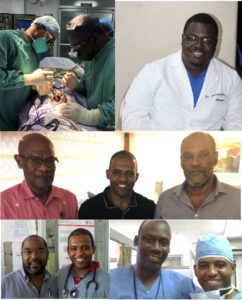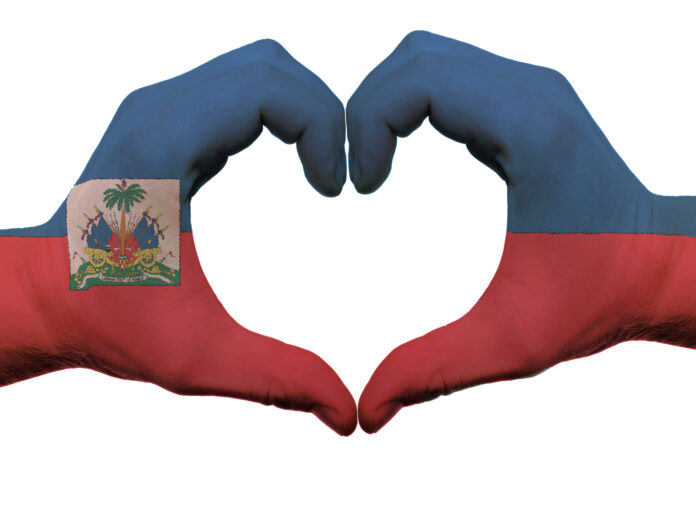“The physicians are the natural attorneys of the poor, and the social problems should largely be solved by them.” – Rudolf Virchow (1821-1902)
Doctor Rudolf Virchow recalls the great responsibility that comes with our vocation and the extensive preparation undertaken for it. Neurosurgeons are among the most highly educated professionals in the global community. Social recognition of this education positions neurosurgeons advantageously for leadership in important areas of global concern. Arguably, the most pressing global concern for all neurosurgeons is the incalculably high toll of death and disability that results from the world’s unmet need for access to neurosurgical care. This need is greatest in low- and middle-income countries (LMICs), as well as in the impoverished communities of high-income countries (HICs) like the United States. Moreover, like other areas of global-health inequity, global neurosurgical disparities are rooted in the enduring legacy of colonialism.
In an earlier issue of this publication, I wrote about the colonial legacy of structural racism in American neurosurgery.[1] Soon thereafter, I joined several colleagues to critically examine the historical impact of colonialism on neurosurgical inequities in Africa and the African Diaspora.[2] These articles provide direct examples of advocacy for global neurosurgical equity, as well as education and data that will hopefully drive further advocacy efforts for constructive change and social justice. The work of advocacy provides neurosurgeons with a vital pathway for creating enduring remedies to global neurosurgical inequities. Neurosurgeons who are passionate about harnessing our potential for positive global impact can find within academic global neurosurgery an enticing combination of challenges and opportunities. This multidisciplinary field empowers them to advocate for individuals worldwide who are in dire need of neurosurgical care.
In LMICs such as Haiti, where I leaned on my own ethnicity as a Haitian American to begin a global neurosurgery journey there shortly after the earthquake in 2010, this work may begin through the creation of local partnerships for instructive data collection. Indeed, a lack of data can prove to be a paralyzing barrier to effective data-driven advocacy. Studying the cultural context and colonial history of LMICs like Haiti can also facilitate advocacy and understanding of striking inequities, such as the absence of local neurosurgery residency training, and the presence of only four practicing neurosurgeons to serve a country of over 11 million people. [Figure 1] In HICs such as the USA, neurosurgical inequities such as the underrepresentation of Black neurosurgeons, and the inferior outcomes of black Americans vs. white Americans in neurological and neurosurgical diseases, must similarly be studied in view of the legacy of colonialism, and its enduring sociocultural context of racism. [3-5]

Finally, stakeholder analyses and related community-building leadership efforts are also crucial in global neurosurgery advocacy, especially in view of the need for identifying and supporting local champions and generating culturally harmonious solutions to the complex problem of neurosurgical resource poverty. Three salient examples of global neurosurgery organizations that exemplify this work include:
- The Young African Neurosurgeons Committee, which organizes courses to build research capacity among young neurosurgeons across the African continent. [6]
- The Society of Haitian Neuroscientists, an organization I co-founded to remedy the unmet needs for neurological, neurosurgical and mental healthcare in all Haitian communities. [7]
- The American Society of Black Neurosurgeons, founded to improve public health by supporting black neurosurgeons and enriching the equity and integrity of neurosurgical care. [8]
Tools of Global Neurosurgery Advocacy
The tools of global neurosurgery advocacy include collecting and publishing data in peer-reviewed scientific journals that illustrate unmet needs for neurosurgical care, as well as the determinants and consequences of those needs. That data can then be used to drive messaging in advocacy platforms. Data-driven global neurosurgery advocacy can also include journalism and social media, activism, fundraising and networking events for neurosurgery capacity-building initiatives, or speaking opportunities in relevant public forums, such as academic grand rounds, global health conferences or other relevant spaces. Policy advocacy may include policy pitches, petitions or signed, collaborative letters sent to government representatives at the city, state, federal or international level.
Training of the Global Neurosurgery Advocate
The standard curriculum of neurosurgery residency offers little opportunity for formal advocacy training. This training may be pursued as research elective time in residency, or during dedicated post-residency periods of fellowship or graduate training. Opportunities include graduate school and/or fellowships in law, global surgery, health policy, social medicine, medical anthropology and/or public health.
In conclusion, even as neurosurgeons constantly pursue fulfillment through patient care, the opportunity of extending our impact beyond the operating room through global neurosurgery advocacy recalls the following, timeless question attributed to the late global health equity champion, Dr. Paul E. Farmer:
“With our ridiculously elaborate educations, what is the nature of our responsibility to the world?” – Dr. Paul E. Farmer
References:
- https://www.aansneurosurgeon.org/feature/racial-background-in-neurosurgerys-eco-system/ (Accessed March 5, 2023)
- Barthélemy EJ, Diouf SA, Silva ACV, Abu-Bonsrah N, de Souza IAS, et al. (2023) Historical determinants of neurosurgical inequities in Africa and the African diaspora: A review and analysis of coloniality. PLOS Global Public Health 3(2): e0001550. https://doi.org/10.1371/journal.pgph.0001550
- Robbins NM, Charleston L 4th, Saadi A, Thayer Z, Codrington WU 3rd, Landry A, Bernat JL, Hamilton R. Black Patients Matter in Neurology: Race, Racism, and Race-Based Neurodisparities. Neurology. 2022 Jul 19;99(3):106-114. doi: 10.1212/WNL.0000000000200830. PMID: 35851551; PMCID: PMC9302935.
- Gabriel PJ, Alexander J, Kārkliņa A. Diversity in Neurosurgery: Trends in Gender and Racial/Ethnic Representation Among Applicants and Residents from U.S. Neurological Surgery Residency Programs. World Neurosurg. 2021 Jun;150:e305-e315. doi: 10.1016/j.wneu.2021.02.127. Epub 2021 Mar 5. PMID: 33684577.
- Barthélemy EJ, Affana CK, Asfaw ZK, Dams-O’Connor K, Rahman J, Jones S, Ullman J, Margetis K, Hickman ZL, Dangayach NS, Giwa AO; New York Neurotrauma Consortium Inc. Racial and Socioeconomic Disparities in Neurotrauma: Research Priorities in the New York Metropolitan Area Through a Global Neurosurgery Paradigm. World Neurosurg. 2022 Sep;165:51-57. doi: 10.1016/j.wneu.2022.06.031. Epub 2022 Jun 11. PMID: 35700861.
- Kanmounye US, Robertson FC, Thango NS, Doe AN, Bankole NDA, Ginette PA, Ondoma S, Balogun JA, Opoku I, Jokonya L, Mbaye T, Shabhay ZA, Ashour AM, Silva ACV, Cheserem B, Karekezi C, Hassani FD, Mentri N, Laeke T, Aklilu AT, Sanoussi S, Musara A, Ntalaja J, Ssenyonga P, Bakhti S, El Abbadi N, Mahmud MR, El-Ghandour NMF, Al-Habib A, Kolias AG, Servadei F, Fieggen G, Qureshi M, Esene I; CAANS Young Neurosurgeons Committee and WFNS Young Neurosurgeons Committee. Needs of Young African Neurosurgeons and Residents: A Cross-Sectional Study. Front Surg. 2021 May 28;8:647279. doi: 10.3389/fsurg.2021.647279. PMID: 34124134; PMCID: PMC8193351.
- https://www.haitineuro.org (Accessed March 5, 2023)
- https://amsobns.org (Accessed March 5, 2023








